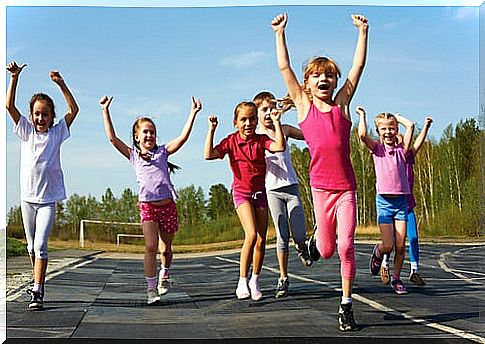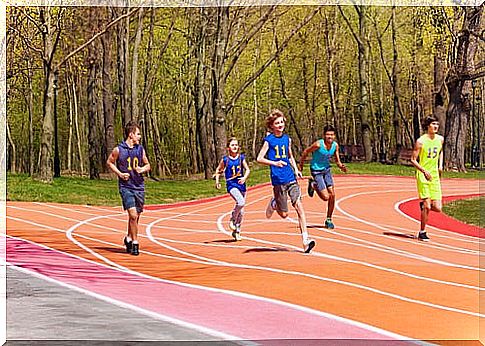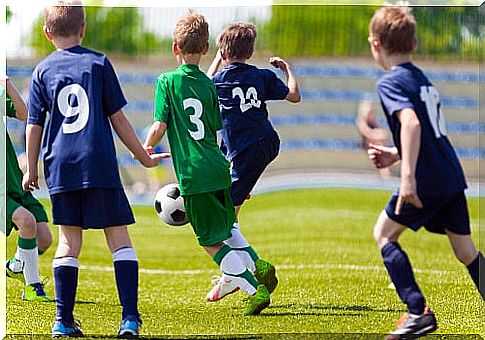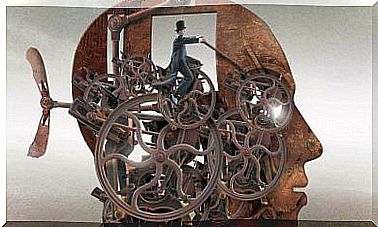Why Is It Worthwhile For Children To Play Sports?

Few images reconcile us with the world as much as that of children playing, having fun. In those moments we see how time and space disappear for them, the future and the past. They are there, having fun like dwarves. It is the only thing that matters in each gesture. Thus, the “innocent” sport is strengthening their muscles and widening their lungs.
On the other hand, these same children soon go on to practice sports in a much more regulated way, controlled by judges or referees and even have coaches. The atmosphere then changes: a goal or a basket becomes something more serious. Although it is no longer like it used to be, the fact that children continue to play sports in this way or another gives them unique development opportunities, beyond being a future “star”.
Let’s go with them.
Make a commitment and respect it
The regulated practice of a sport makes children have to follow a discipline. There is a time to change, another to warm up, another to do a little mental preparation, another to compete, another to manage victory and defeat … Even during the week there may be certain hours scheduled for training. In the background there is a commitment with which the little one has to respond.

One day you will feel like more and another less, but you are part of a team and as one of its components you have to respond with your contribution. Thus, sport is a fabulous context for children to learn to organize themselves and activate their will to respond at certain times.
Living with expectations
Sport, even at younger ages, becomes a field of performance. The child, on many occasions, without anyone telling him, and even leaving aside a possible result, knows when he has been correct and when he has not.
Thus, he will learn that many times it is he himself who precipitates defeat when in the early stages of the game he cannot respond to, perhaps, very high expectations, and then he collapses. You will learn to raise these expectations when you string together good executions. You will also have, thanks to sport, the opportunity to learn how to manage a loss and get up for the next competition. You can even reflect and understand, with help, how the expectations of others also shape your choices, your execution, and your performance.
You can also learn to manage frustration and anger with yourself. Here parents have a precious opportunity to intervene and teach them to have a constructive internal dialogue, with which they do not mistreat themselves. And the best thing is that we can do it at a time when our word weighs heavily on the little ones, before adolescence begins and the influence of peers begins to gain ground.
Develop your senses
Many of the characteristics of the game itself have to do with those of life itself. For example, in the field there are people who go with you, who support you, just as in the life journey. The child, if we talk about a team sport, will learn that he is not alone, for the good and for the bad. That you share interests with a group of people (win or make a good mark) and that the results will be better if you rely on them and, in turn, if you support them.

You will also learn that many projects that do not start well can be turned around with effort and intelligence. A goal or a bad start does not imply the final defeat. It just means that it will be a bit more difficult to achieve, but not impossible. He will also learn that there are certain actions that others cannot do for him, be it organizing play or moving his legs quickly.
We could continue to highlight parallels, but perhaps the last and one of the most striking is that with sport children learn the importance of anticipating. Either to the game, or vice versa. They learn that just as a bad start demands overexertion, a good start or intercepting the ball before it reaches the opponent’s feet or hands is a huge advantage. In this sense, sport becomes a privileged exercise of sustained attention for children who have a prefrontal cortex (the one that is responsible for the organization of behavior and decision-making) in full development.
Finally, as much as sport is a setting for learning, it should never be detached from that image with which we began the article. Of those children in the park, having fun and enjoying themselves. Because perhaps the best thing about sports in childhood is that it is usually one of the best common threads for first friendships and one of the best arguments that tell stories of happy childhoods.









